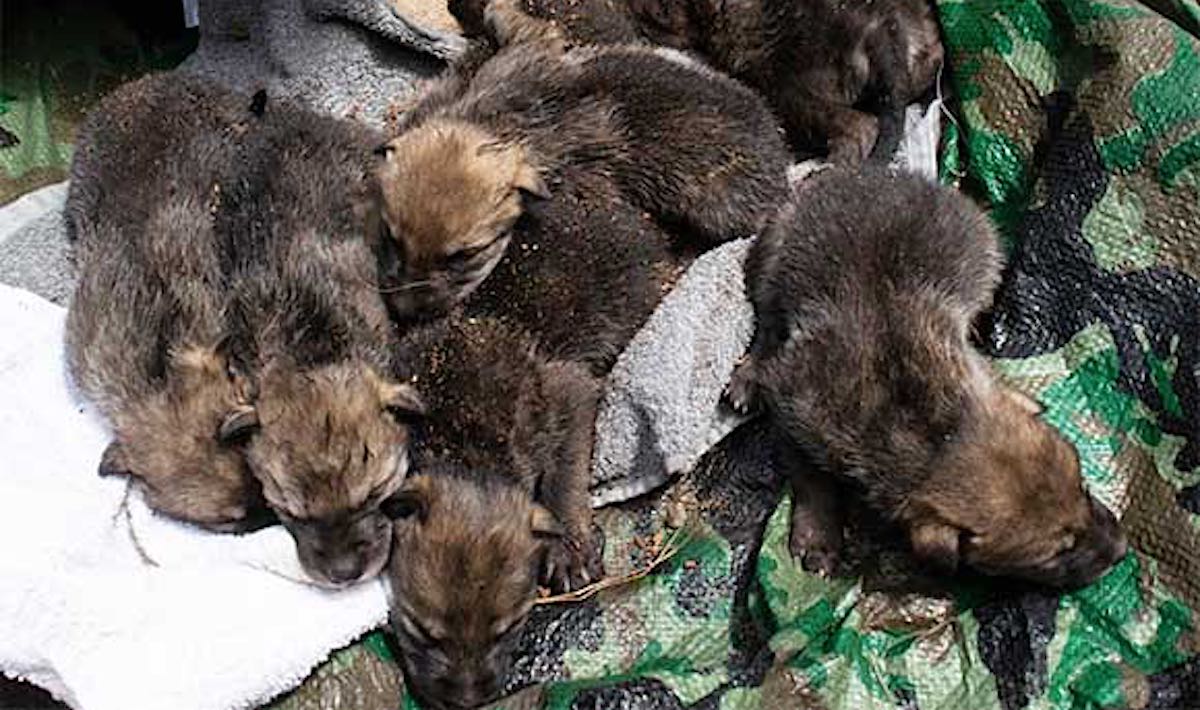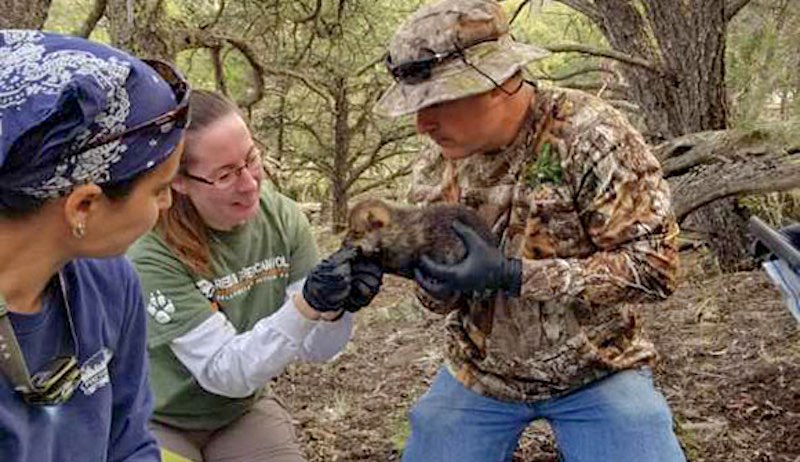I find this news to be very special because it relates to the one on which I made a blog post two years ago. In that post, I talked about what cross-fostering is and how it is being utilized in the conservation of Mexican wolves. I was initially unsure whether the cross-fostering technique would be successful and how, but according to this news, it has proven to be successful. A census conducted in 2019 recorded 163 wild wolves (76 in Arizona and 87 in New Mexico); an increase from 131 animals counted the year before. I'm confident that cross-fostering will be beneficial in the Mexican wolf conservation and will help bolster the numbers in the American Southwest. I think this method should also be utilized in the conservation of red wolves on a trial basis and see how it turns out. In the meantime, the future for Mexican wolves in the U.S appears bright.
Tuesday, June 30, 2020
Cross-fostering a Success in Mexican Wolf Conservation
COVID-19 Pandemic is No Excuse to Refrain from Protecting Endangered Wildlife
The hunt for Kunjok Lama goes back about twenty years prior to the pandemic when Indian security forces seized a stockpile of endangered animal body parts in the city of Ghaziabad. Those arrested during the bust identified Lama as the chief mastermind of the smuggling ring. Since then, poachers caught during every seizure named Lama as the ringleader. In 2005, a Nepali Army patrol stationed at Langtang National Park captured four people transporting 36 leopard skins, 5 tiger pelts, and 113 kilograms of tiger bones to the China-Nepal border in a truck. They also named Kunjok Lama, along with Dondhip Lama and Nudup Lama as the masterminds. The park warden at the time sentenced two of the arrested to fifteen years and one to five years in jail with support from the Appeals and Supreme Courts. Langtang National Park gave details about Kunjok Lama to the Central Investigation Bureau (CIB), which led to a 15-year-long hunt that finally ended last week with Lama's arrest.
In addition to Lama, another smuggler whose name kept coming up was Jimi Sherpa also known as Lodu Dimey. In 2005, when the police captured another border-bound truck in Rasuwa containing five tiger bones and pelts, they came to know from those arrested that Dimey was the mastermind. The police then stormed Dimey's house in Baudha and confiscated almost Rs. 4 million in cash, along with Chinese, Indian, and American banknotes. In a cache of wildlife contraband, they also discovered four human skulls that are in demand in Tibet for various rituals. A case was filed against Dimey, his wife Diki, driver Nakul Tamang and vehicle owner Suk Bahadur Tamang at the District Forest Office in Nuwakot. Dimey was fined Rs. 100,000 and his wife Rs. 60,000 in absentia while the other two were released on Rs. 100,000 bail. Seven years ago, the Patan Appeals Court sentenced Dimey, who was still at large, to five years in jail. With the help from the Interpol, he was caught in New Delhi after investigations indicated him to be involved in tiger poaching in national parks of Madhya Pradesh. Dimey was then flown back to Kathmandu, but in 2018, the Supreme Court ordered him to pay a worthless Rs. 45,000 fine and released him. Although disappointed, the police began investigating the connections between Dimey and Lama. They discovered that he was born in Dehradun, and had been under investigation in India for various crimes, which included making Nepal an accumulation center for wildlife contraband from India, Sri Lanka, and Bangladesh for smuggling into China. Deputy Inspector General Sahakul Thapa is hopeful that the arrest of Lama will lead the authorities to Dimey.
 |
| Lodu Dimey arriving at the Kathmandu airport. |
While I admire and applaud the recent efforts in capturing Kunjok Lama, I also believe that law enforcement officials and others involved in the battle against illegal poaching and wildlife smuggling should not be bogged down by the COVID-19 pandemic. Just because the numbers of reported cases and deaths from the virus keep increasing does not mean that efforts to fight wildlife-related crimes should temporarily be stopped. That would be giving poachers, smugglers, and other perpetrators involved in the illegal activities an opportunity to further decimate the populations of various endangered species. I firmly believe that efforts to protect the world's endangered wildlife should remain perpetual during the pandemic and people involved should remain active. At the same time, they should adhere to the pandemic safety protocol such as keeping face masks handy, maintaining social distance, and taking time off if feeling sick.
Subscribe to:
Comments (Atom)




